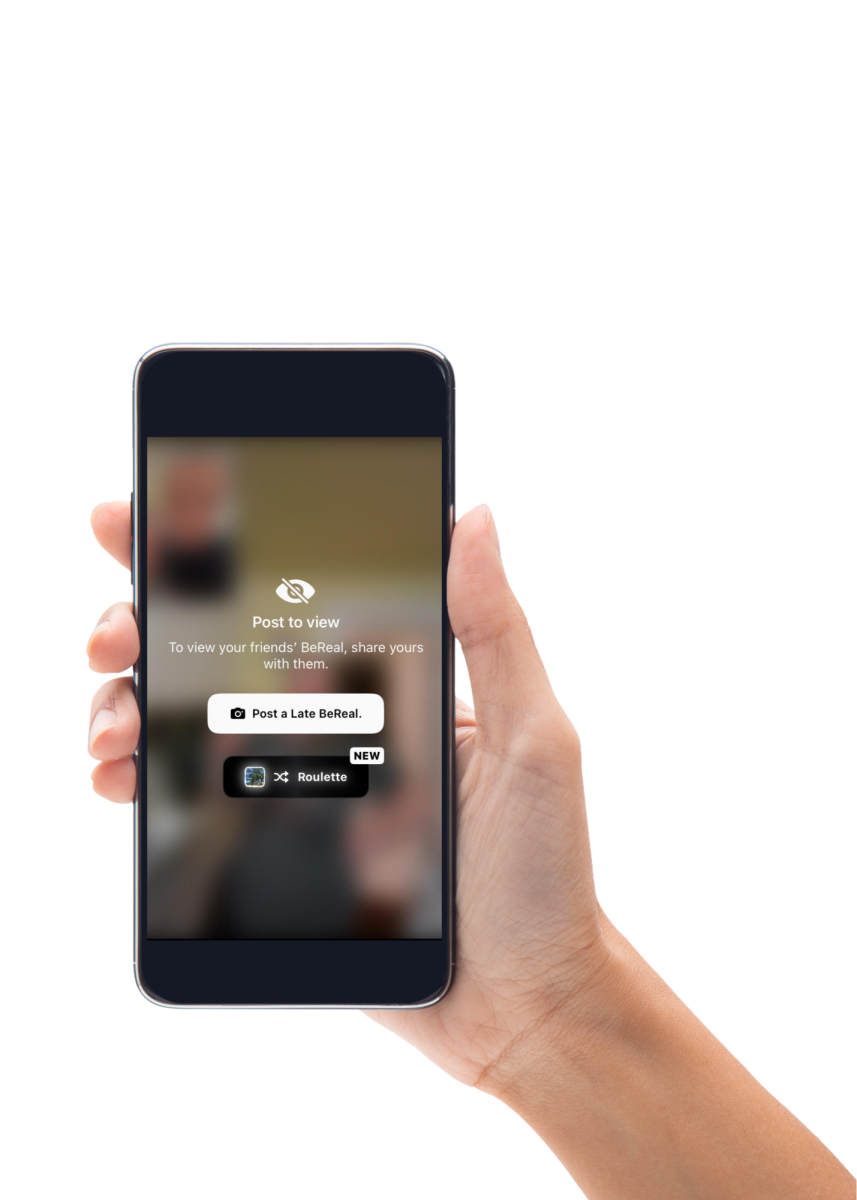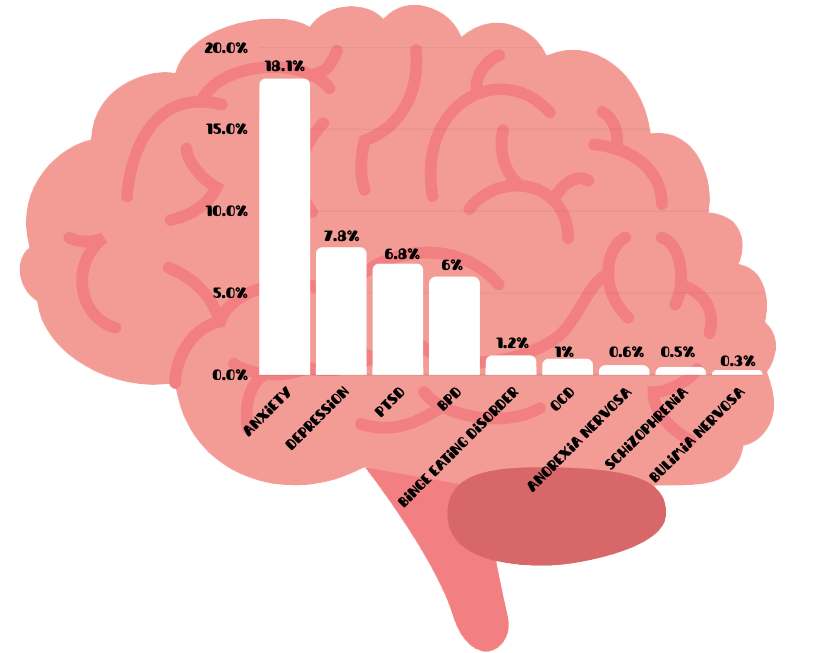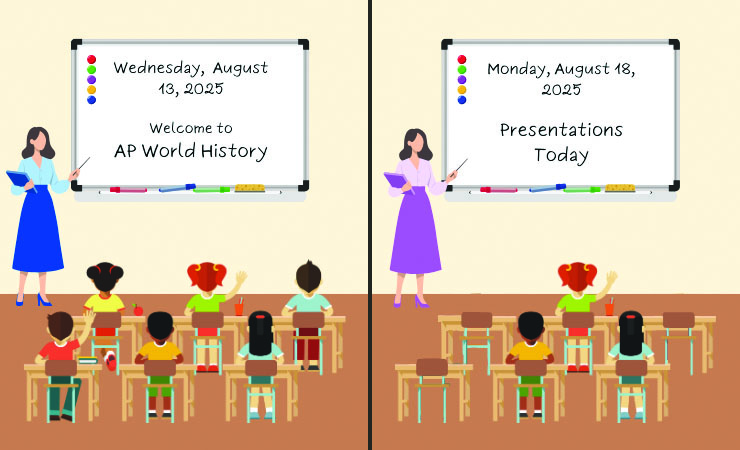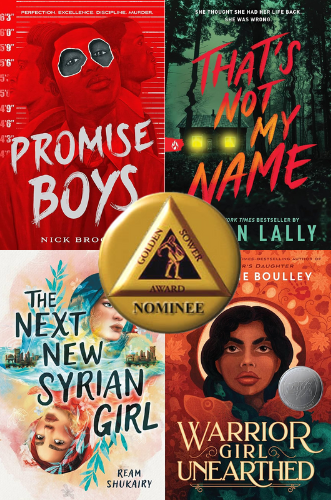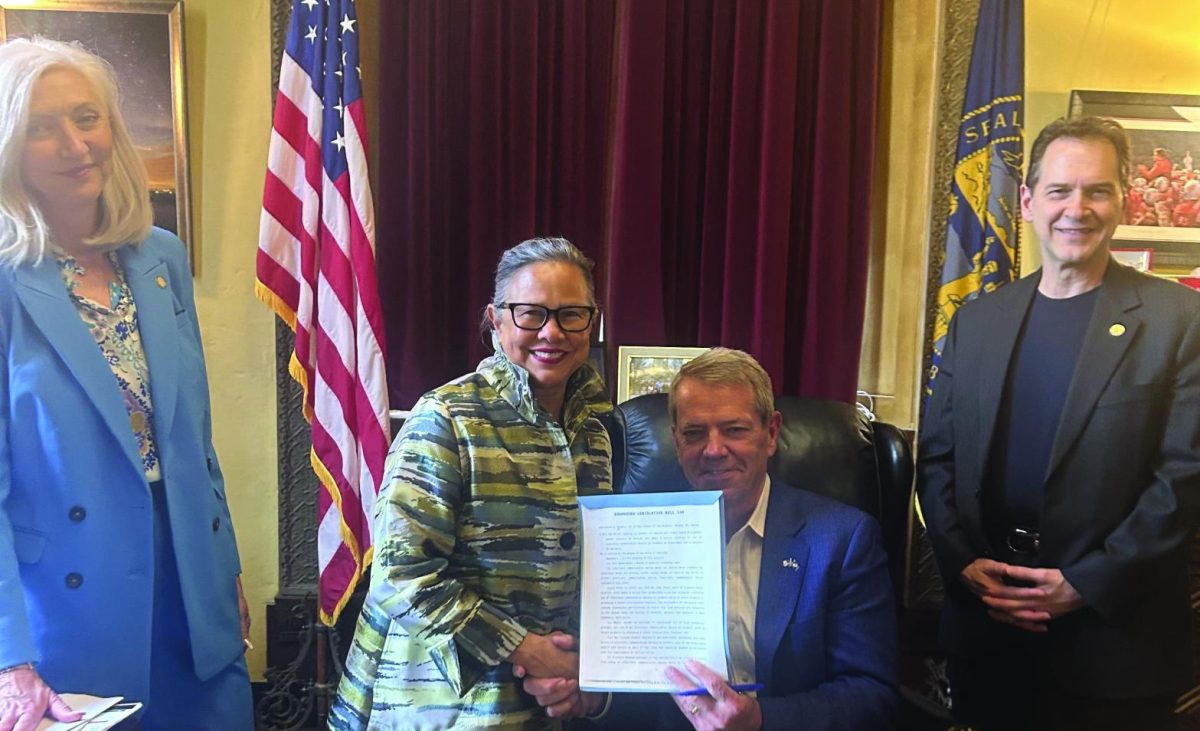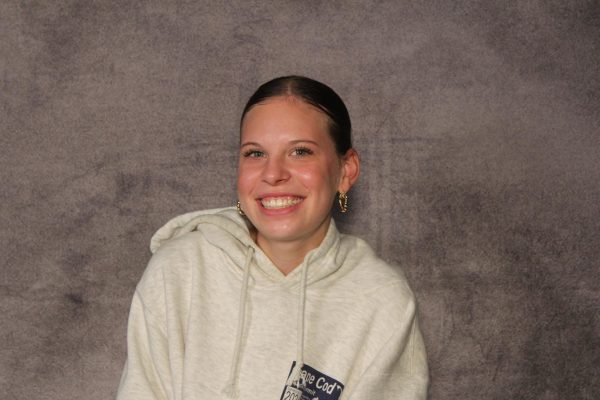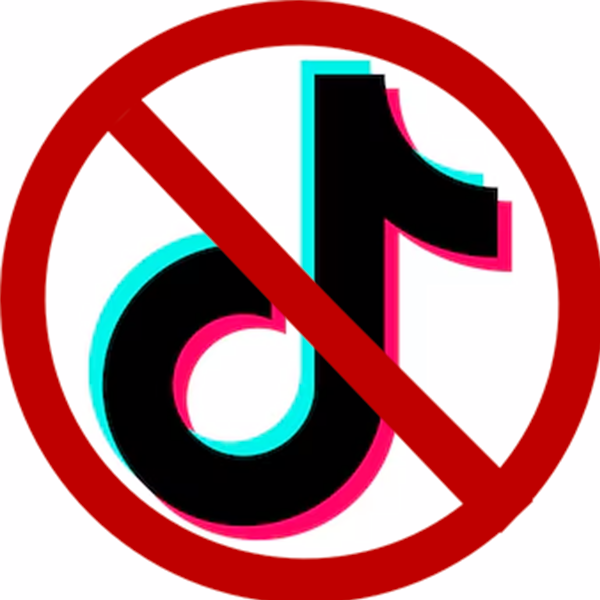
On Wednesday, April 23, Joe Biden signed a bill into law that could ban TikTok for U.S. users. The bill mandates that ByteDance, the Chinese parent company that owns TikTok, must sell the app within the next 270 days, or the app could be banned in the United States.
However, the ban might not work how you think it will. Only those who do not have the app will lose it, because it will be deleted from the App Store. Those who already house TikTok on their phones will still have the app, but it will stop updating and therefore will eventually stop working.
TikTok originally began as the app Musical.ly, which was released in August of 2014 as an app that users could use to create short videos. In 2018, ByteDance purchased the company, which eventually merged with TikTok to create the familiar app that we all know of today.
Out of the 32 of LSE students polled, 81.3% said that they have had TikTok before or have it now. The app
has become very popular in recent years as a place for people to make entertaining videos for viewers to watch.
However, a trend in the past few years has been “infotainment”, or the making of videos that try to provide educational material to viewers in an entertaining way. Many people also use it to share their thoughts and opinions on various topics.
One of those people is Dr. Phil Boucher, who is a local Lincoln pediatrician and the owner of Frontier Pediatric Care. Dr. Boucher makes videos on Instagram and TikTok that discuss topics such as the appropriate age for children to have phones and certain apps, such as social media, and also how it may be beneficial for parents to implement limits on those apps.
Dr. Boucher says that he recommends not even giving kids phones until 8th grade because there are many options for kids to be able to contact parents without them having to have a smartphone that has all of the apps and features. He also recommends not letting adolescents have social media apps such as Instagram and TikTok until they are at least 16 because of the negative effects that can come with it.
“Loads of studies, even ones that were funded by Meta (the parent company that owns Facebook and Instagram), s
how that social media exposure increases risk of anxiety, depression, and self-harm. [Social media] also has a dramatic impact on body image, disordered eating, and bullying,” Dr. Boucher said.
According to a study done by the Mayo Clinic, the effects that social media apps have depend on the preexisting issues that people have, as well as the content that is being viewed and the amount of time that is spent.
Many feel that social media can have benefits. It can be a way for people to express themselves, find support from others, relieve stress and connect with groups around the world. However, it can also disrupt sleep, time spent with family, exercising and on homework, as well as spread false information, rumors, and make it easier for online predators or hackers to gather information.
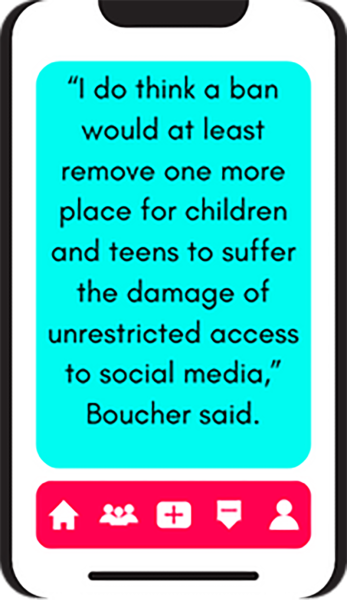
While Dr. Boucher says that he thinks the ban is more of a political issue than a parenting issue, he still thinks that if the app is banned, it could be progress for mental health.
“Kelly Espenschade is a therapist who also works at Frontier Pediatric Care, and has been in the mental health field for 12 years. She is a licensed mental health practitioner and works with kids ages 5-21, some who are mutual patients between her and Dr. Boucher. She works with methods such as play therapy and cognitive behavioral therapy “to help kids and teens identify, address, and process through life stressors, traumas, mood issues, anxiety, concentration difficulties, eating concerns, adjustment issues, etc.”
Espenschade has similar concerns to Dr. Boucher, especially with social media and technology. She says her concerns relate to what phones are being used for, if they are being regulated by parents and are limits being put into place and how often the phone is used.
“I believe that there needs to be conversations between parents and children about social media, the potential negative effects it can have, how to use it for good, and what their specific family’s rules are regarding social media. If parents allow their children to have access to social media, I think that parents need to monitor and have access to their child’s social media, especially if the child is younger,” Espenschade said.
While there can be many effects to the app, whether they are positive or negative, this doesn’t stop teens from using the app. The opinions on TikTok are mainly split into two sides. Many students see the app as a place for people to express themselves, make videos, share things, and learn about new things. However, the other half tends to think that it can create toxic communities, unhealthy standards, especially for beauty, spread misinformation, and be addicting.
Out of the students polled, about about 22% said that they used it an hour or less, 22% use it 1-2 hours, and 28% use it 2-3 hours, if not more, everyday.
“[It’s] one less place to get social media from but I think there will always be another place until parents decide they are going to get serious about protecting their child from early exposure,” Dr. Boucher said.

